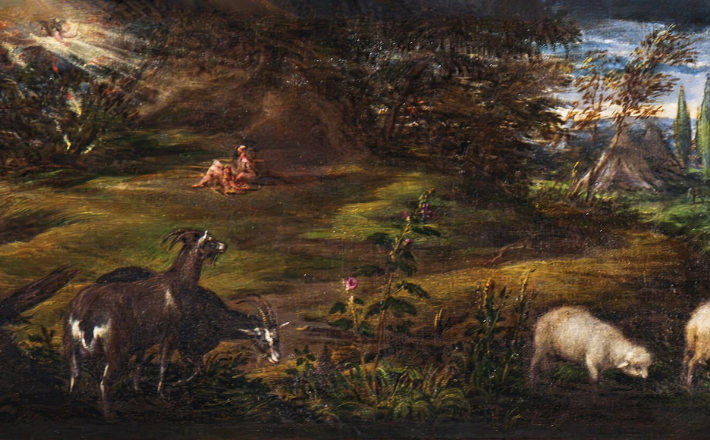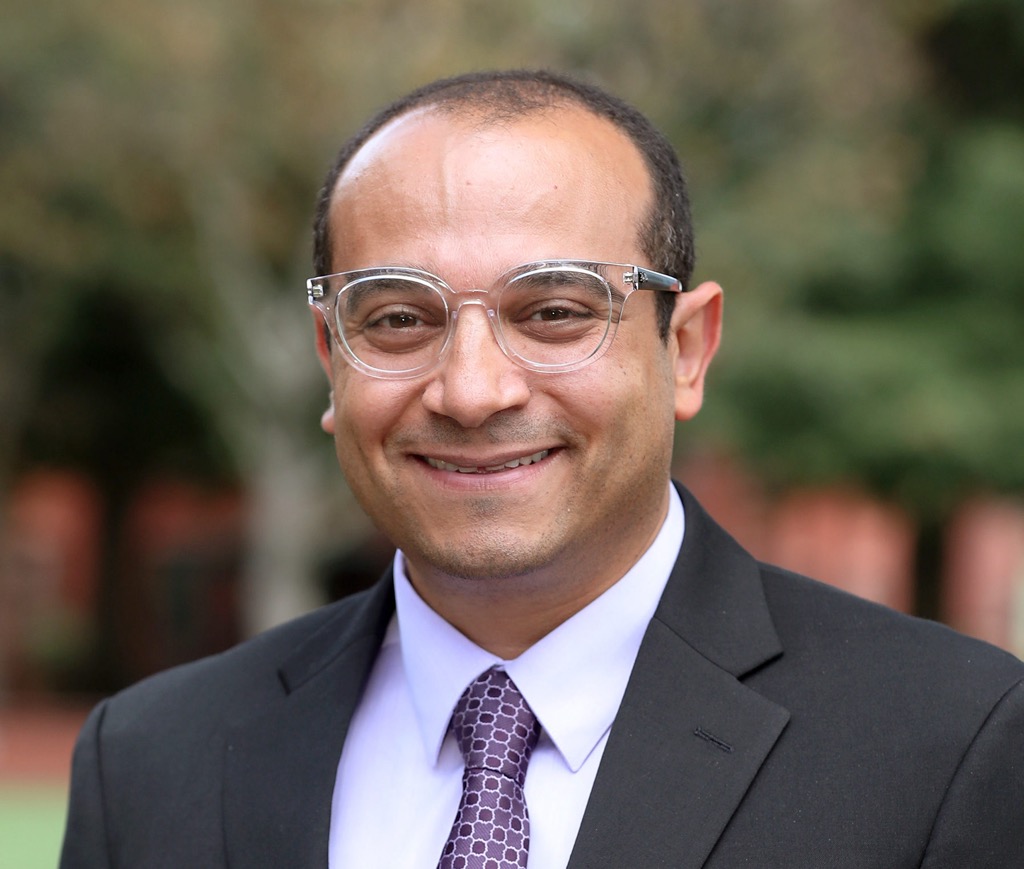Commentary on Exodus 1:8-14 [15—2:10]; 3:1-15
Tyranny emerges at times of transition and change; times in which fear of the other dominates the scene; times in which the world is polarized and divided between us and them; times in which power is misused by the tyrant (Pharaoh in this case) to dehumanize the other (the Israelites). But even as tyranny feeds on xenophobia and fear of the other, and as it tries to dominate those whom God created to be free and to live with dignity, agents of resilience, resistance, and transformation emerge: In this narrative, we meet midwives, whose fear of God supersedes the fear of the other that the tyrant perpetuates. We witness Moses’ parents, who go on in faith and wisdom with their ordinary lives in the face of violence. And we are shocked when Pharaoh’s daughter uses her power and privilege to undo the very foundations of tyranny by showing surprising compassion and empowerment to the marginalized.
In order to construct this monopoly of power, Pharaoh employs a few tactics that the reader can easily detect in his words. First, Pharaoh frames the relationship between the Egyptians and the Israelites as a binary opposite of “us versus them”. Pharaoh uses similar words to those of the narrator to speak of the blessing of the Israelites, but Pharaoh’s discourse adds an important twist: “they have become more numerous and more powerful than we” (Exodus 1:9). Second, Pharaoh’s discourse ventures into hypothetical scenarios of war, conflict, unrest, and treason in order to stir the emotion of fear in his audience (1:10). Polarization, labeling the other as a threat, stoking fear of the unknown—together, these become a perfect recipe for the tyrant to use to monopolize power and to mobilize violence and oppression. Pharaoh’s claim to power is ratified by involving the ones who buy into his propaganda of fear and suspicion; these ones then become culpable for listening to his malicious wisdom and for participating in his oppressive plans. Indeed, “let us deal shrewdly with them” (Exodus 1:10) turns into a ruthless forced labor regime that crushes the Israelites and makes their lives unbearable with bitterness (Exodus 1:11–14).
Liberation is a divine and a human responsibility
When oppression intensifies, subversive forms of resistance (for example, the midwives, Moses’ mother and sister, Pharaoh’s daughter; Exodus 1:15) hold the promise of liberation. Even when human attempts fail (for example Moses; Exodus 2:11-15), there is always a potential of a new start. The outcries of the oppressed moves God to act (Exodus 2:23-25).
While Moses was doing his ordinary routine of taking care of the flock of his father in law, he finds himself in a place that will change his life and vocation for good. The messenger of the Lord, whom we later know is an embodied manifestation of YHWH, the God of the ancestors of Israel, appears to Moses in the midst of a burning bush. The fire in the midst of the burning bush that was not consumed represents the suffering of the Israelites who are oppressed but not consumed by it. The word sene “bush” anticipates the name of the mountain Sinai, when God appears to the whole liberated congregation of the Israelites (Exodus 19). That Moses at the Mountain of Horeb/Sinai is being called to liberate the Israelites from the oppression in Egypt brings the whole narrative full circle. The goal of liberation is for the Israelites, like Moses, to be claimed by YHWH as God’s people.
God’s call for human agents to join in the mission of liberation and justice is not forced. When Moses sees the unusual sight of the burning bush that was not consumed, he decides to turn aside, to stop his routine and pay attention to this miraculous site that is breaking new ground. Upon seeing Moses taking the decision to look, the relational God who responds to human actions starts speaking to him. As much as God is portrayed as a sovereign God in the book of Exodus, a text like this shows that relationality is at the core of God’s work in the world.
On this holy ground, God calls Moses by name and reveals Godself to this outcast Hebrew who failed to liberate his people. The deity is the God of the ancestors Abraham, Isaac, and Jacob. Moses belongs to a long standing tradition of divine promises that have been delayed from being fulfilled. The fugitive Moses encounters God, discovers a new sense of belonging, and is given a commission.
The work of liberation requires God’s work and human agency. In this composite text that is made up of different Pentateuchal traditions, God assures Moses that God has heard and has seen the suffering of the Israelites in Egypt (See also Exodus 2:23-25). As much as verses 9-10 seem to be repeating what has already been said in verses 7-8, some of the differences between these verses stand out. The most important difference relates to the agent of liberation. In verse 8, God says “I have come down to deliver them from the Egyptians,” while in verse 10, God commissions Moses saying “So come, I will send you to Pharaoh to bring my people, the Israelites, out of Egypt.” God is capable of doing this work of liberation, but this is not how God works in the world. God freely chooses to involve human agents to dismantle oppression. When humans are overwhelmed by the weight of the task, they can trust in God to work miracles to bring about justice. When humans are complacent towards the status quo, or assume that liberation is God’s work, this text is a reminder that God calls humans to confront oppressive systems.
The question around human identity—“who am I”—is bound to the question about God’s identity and activity in the world. As soon as God calls Moses, he brings about two excuses to refuse God’s call. In the forms of questions Moses unknowingly binds his identity that of God. God’s name is a verb “I will be whom I will be” or “I am who I am.” As much as God’s name conceals who God is, it still signifies the continuous unfolding of God’s revelation. God will be known through God’s actions. In this case, as God reveals God’s name to Moses, God identifies Godself as the God who acts as a liberator, a God who restores creation in the freedom of God, a God who is freely bound to a covenant with the people who God calls out of dehumanizing forced labor. This “I will be” will accompany Moses as he confronts Pharaoh. Again, this underlines the identity of God as a companion to the human agents who respond to the call. Thus, Moses should not define himself through his earlier failure or the potential resistance of the Israelites or Pharaoh. He should define himself through the relational God who calls him.
The ultimate goal of God’s activity and human agency in the economy of salvation and liberation is for the people of God to worship their deity. This is the first sign that God gives to Moses. It is a mysterious sign because it is a futuristic one. Moses will be assured that God has sent him to liberate the Israelites after they actually come to the mountain and worship God. Even though the sign might be alluding to the burning bush that is not consumed, syntactically it is pointing towards something that will happen and not something that has already taken place. The work of liberation demands risk taking and trust in the God who calls. The nature of this saving and liberating mission is not only concerned with what the people will be liberated from, but it is also concerned with what the people will be liberated into. They will be liberated from “serving” (Hebrew ‘bd) Pharaoh to “serving” “worshiping” (same Hebrew root, ‘bd) YHWH at this mountain. The people will be liberated from an allegiance to oppressive economic systems that dehumanize them, and they will be liberated into a covenantal relationship that calls them to embody justice to the world around them so that they and the whole creation be restored to dignity and well-being.
Caution
The way Egypt is portrayed as a place of oppression is a dominant image of how Egypt is constructed in the biblical traditions. It is important for preachers not to essentialize Egypt as only a place of slavery. Preachers could remind their communities that other biblical traditions portray Egypt as a place of refuge. And that in Isaiah 19:18-25, when the Egyptians themselves are oppressed, they cry out to God. In response, God rescues them from oppression declaring “blessed be my people Egypt.”
PRAYER OF THE DAY
God of deliverance, you called Moses to be your hands, feet, and voice in a troubled world. Teach us how to work, walk, and speak your word in a troubled world. Amen.
HYMNS
Guide me ever, great Redeemer ELW 618, H82 690, GG 65, NCH 18/19, UMH 127
Bless now, O God, the journey ELW 306
Go Down Moses GG 52, H82 648, NCH 572, UMH 448, TFF 87
Welcome Table ACS 969, GG 770, TFF 263
CHORAL
I sing the mighty power of God, Robert Leaf


October 1, 2023